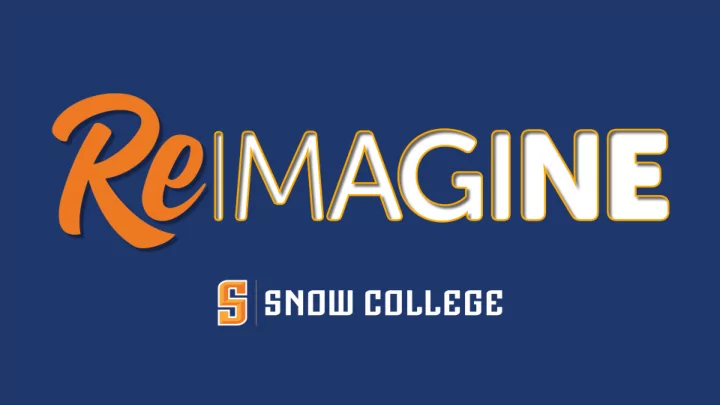

5,589 5,574 5,450 5,414 5,107 2015 2017 2018 2019 2016 Data represent total headcount as of the End-of-Term of each fall semester (includes all students)
93% 7% Traditional Non-Traditional 57% 43% Service Area Other
“The primary challenge for the two -year sector in the next 15 years is clear: dramatically reduced enrollments. Indeed, the expected rate of contraction in two-year enrollment is almost 20 percent faster than for college enrollments in general. ” __________________ “Significant changes to revenue and/or cost models must offset expected declines in the number of young people by increasing attendance rates. This can be accomplished in two ways: by reaching beyond traditional students or by increasing attendance rates within the traditional student population.”
Projected Percent Change by • 56% Growth Selected Age Group (2016-2040) Six County • 43% Growth 2020 • 8% Growth Gardner Institute
Utah 9% 9% Six Counties 13% 15% 11% 12% 19% 13% Areas above the state percentage Source: ibis.health.utah.gov and DataUSA
Utah $25,600 $19,194 Six Counties $19,459 $16,924 $21,643 $20,074 $17,416 $21,501 Areas below the state percentage Source: US Census Bureau & American College Survey 2016
Utah 43.1% 31.1% Six Counties 33% 29.2% 33.9% 29.3% 32.3% 41.5% Areas below the state percentage Source: Utah DWS
Utah 6% 9% Six Counties 9% 11% 9% 15% 7% 5% Areas above the state percentage Source: Utah DWS
Utah 3.0% 3.0% Six Counties 4.0% 3.8% 3.3% 3.6% 5.3% 6.1% Areas above the state percentage Source: Sperling’s Best Places. Bestplaces.net/economy
Utah 22.2 38.3 Six Counties 28.3 25.3 16 30.3 30 30 Areas above the state percentage: age-adjusted per 100,000 population Source: ibis.health.utah.gov
• • • • • • • • •
SVATC merged with Sevier Valley Applied Snow College (HB114) Technology Center
Gary Wixom, “Snow College Service Area Needs Study: CTE Review” (November 2019)
SnowOnline will be a national leader in providing accessible, affordable and flexible education for rural and other underserved populations Program Characteristics Program Audiences Online Working Learners Competency-Based (CBE) Place-Bound Adults Low Cost, Affordable Homeschoolers Scalable Prison Education Stackable Non-Traditional Students Self-Paced Rural-Underserved Focused Transferrable “Snow College, or no Industry-Aligned college” populations Prior Learning Assessment
93% 7% Traditional Non-Traditional
• • • • • • • • •
• Extension • 2+2 Rural Health Campuses: Scholars (pre-med) Ephraim, Richfield (IVC delivery) • 3+1 in Visual • Professional Arts Driving (CDL) • 4+1 Music Education • Prison Education: • 3+1 in Visual Culinary Arts Arts Construction Management
• USU Agribusiness 4- • CBE year degree in • Non-Credit, Adult Ephraim Learners • 4-Year Elementary • Education degree in 4-Year in Business Ephraim • 4-Year Nursing Degree in Richfield • Bachelor of Applied Science (BAS) • Prison Education • AS Aviation Maintenance Tablet Initiative Tech
• Reallocation of available funds ($814,554) to compensate for decreasing tuition revenue because of enrollment changes: requested all budget holders throughout campus analyze their budget and donate back any available funds to help cover costs • Eliminated a VP position ($98,000 net savings) • Reallocated faculty lines to other high demand areas • Consolidated positions with IT and Student Success ($60,000) • No Tier-Two (2018-19) increases ($171,554) so all inflationary adjustments were handled within the existing budgets • LED lighting transition and better metering systems to save energy
Recommend
More recommend